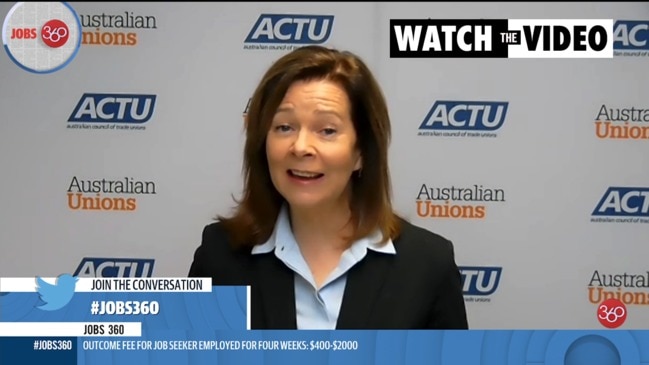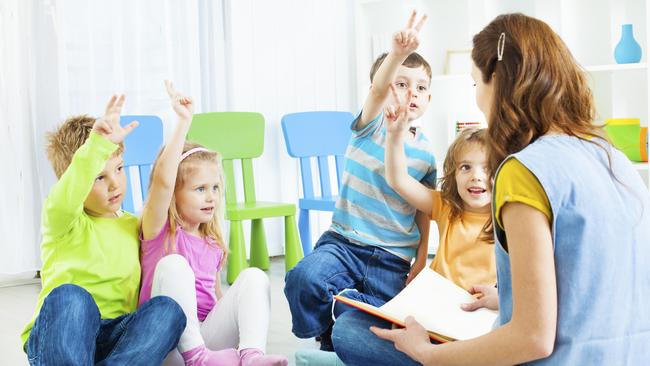End to free childcare, higher petrol prices hit families in the hip pocket
Fuel prices and the end of a free government scheme hit Australians in the hip pocket in the September quarter, the latest inflation figures show.

Costs
Don't miss out on the headlines from Costs. Followed categories will be added to My News.
Price inflation in Australia was higher than expected in the September quarter following the biggest decline in 89 years during the previous period when childcare was free and the cost of petrol plunged almost 20 per cent.
The Consumer Price Index – the main measure of inflation in Australia – rose by 1.6 per cent in the first three months of this financial year, but economists were only expecting an increase of more than 1.4 per cent.
The reversal from the June quarter – when prices fell by 1.9 per cent – was due to the federal government’s pandemic-related childcare subsidy ceasing on July 13 and a rebound in fuel prices.
“The June quarter CPI figures were historic,” CommSec chief economist Craig James said on Wednesday.
“The last time consumer prices fell by 1.9 per cent over a quarter – that is, over a three-month period – was in 1931.
“The September quarter CPI marks a partial return to ‘normality’. However, we will only get a true sense of inflation and where prices are headed in 2021.”
In the year to September, the CPI rose by 0.7 per cent, again, higher than economists were expecting.
Other than childcare, the most significant price rises were: petrol (up 9.4 per cent), preschool and primary education (up 11.1 per cent), furniture (up 6.4 per cent); major appliances (up 5.3 per cent) and small appliances (up 5.8 per cent).
The figures unsurprisingly showed uneven inflation around the nation, with prices in coronavirus-stricken Melbourne only 0.9 per cent higher but up 2.3 per cent in Brisbane and Canberra.

Transport costs rose in all capital cities as global fuel demand partially returned and production fell.
Thrive by Five, an arm of Andrew Forrest’s philanthropic Minderoo Foundation that advocates for improving Australia’s early learning childcare system, said the CPI figures showed the alarming cost of childcare to families.
“For too many Australian families it’s unaffordable,” chief executive and former SA premier Jay Weatherill said.
“The CPI numbers have shown us that when we talk about childcare fees, we’re not talking about a few dollars per household; we’re talking about enough money to alter the entire country’s cost of living.
“Turning on free childcare helped give us the biggest drop in CPI since records began just after World War II.
“Turning it back off has hit families hard at a time when many people are underemployed or unemployed.”
The overall inflation figure is well below the Reserve Bank of Australia’s target band of 2 to 3 per cent.
It has effectively said it doesn’t expect inflation will be a concern for at least the next two to three years, tipping there will be no increase in the cash rate – the interest rate on unsecured overnight loans between banks – during that time.
Mr James said inflation would likely remain below the bank’s target band for a few years.
“Today’s inflation result doesn’t stand in the way of a further easing of monetary policy,” he said.
The RBA makes its interest rate decisions when it meets on the first Tuesday of each month, excluding January.
This year, it is Melbourne Cup Day on November 3, and the bank is expected to cut the cash rate from an unprecedented low of 0.25 per cent to 0.10 per cent.
Originally published as End to free childcare, higher petrol prices hit families in the hip pocket
